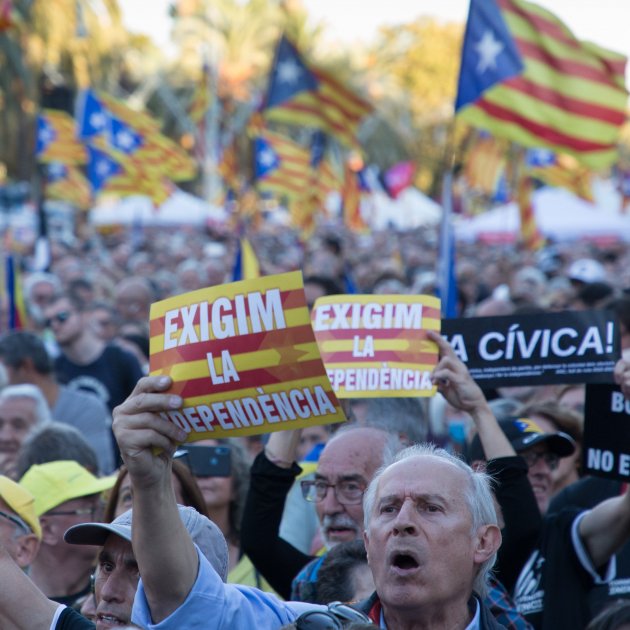No rectification. The Spanish public prosecutors at the National Audience criminal court have again included the Catalan independence movement in their "terrorism area", according to the 2022 report from the Spanish prosecutor general's office, which chief prosecutor Álvaro García Ortiz presented this Thursday at the event held for the official opening of the new judicial year. Currently, there is no Catalan group that advocates the use of violence in its call for Catalonia to become independent. However, the prosecutors maintain that there is a "Violent Catalan Independence Movement" and that in 2022 it produced 24 "actions of violence and sabotage in Spain". Those were: 11 cases of "damages and incitement to hatred"; 8 cases of "public damage and disobedience"; 3 "damage to private companies"; 1 of "damage to a political headquarters", and 1 crime of glorifying terrorism. In last year's document, the prosecutors included 54 actions by the Catalan independent movement in their terrorism section, including eleven demonstrations.
In fact, this summer it was reported that Europol also classified the Catalan independence movement as a terrorist organization, based directly on information provided by Spain. The MEP Diana Riba requested an "urgent" meeting with the EU justice commissioner, Didier Reynders, and the director of the European Police, Catherine de Bolle, over the report on the situation of terrorism in the European Union, which stated that the "Catalan and Basque independence movements" were the "most active and violent" in the Spanish state.
Activists "exhausted"
In the report, the National Audience prosecutors include their "assessment of the current threat" with regard to the Catalan independence movement and they maintain that "during 2022, a decrease in acts of sabotage was detected mainly due to the exhaustion of the grass-roots activists and the lack of important events relevant to their vision that could be used as stimulus to call large demonstrations and action campaigns". It adds that "the loss of initiative by these violent groups, also motivated in part by the action of justice, has caused a large part of their activity to focus on so-called 'Anti-Repression'." And it concludes that "mobilization in response to judicial processes involves the most resources to these groups, with the execution of campaigns of graffiti or social media".
With regard to the court processes most relevant to Catalonia, the prosecutors again mention the cases opened since 2019 against 9 CDR activists accused of terrorism, as well as the case against the Democratic Tsunami protest platform. Nothing more.
Also in the area of terrorism, the prosecutors include the Basque terrorist group ETA, disbanded years ago, the far-left group GRAPO, Jihadism, the extreme right and the extreme left, and reviews the actions of environmental movements, such as the climate change protests in art galleries and museums, where works were splashed with liquid products such as soup. "If initially it was Extinction Rebellion (XR) and its satellite groups who carried out these activities, now it is Futuro Vegetal who
are conducting most of them, especially within the framework of their campaign against the meat sector," says the report.
Terrorism represents 34.98% of all proceedings initiated by the prosecutors at the National Audience court in 2022 (163 out of a total of 466), a percentage that indicates that it is slightly higher than in 2021, which was 31.86%. The category of jihadist terrorism is the majority (132 cases), followed by ETA, 26. From the radical Islamist movement, it is reported that 36 people were arrested, most of them for promoting terrorism in 17 operations, and it is worth noting that most of them were in Catalonia. Of the 36 arrested, 4 were in Barcelona, 3 in Girona and 1 in Tarragona.
In the main photo, demonstration to mark the anniversary of the October 1st referendum in Barcelona. / Photo: Eva Parey
